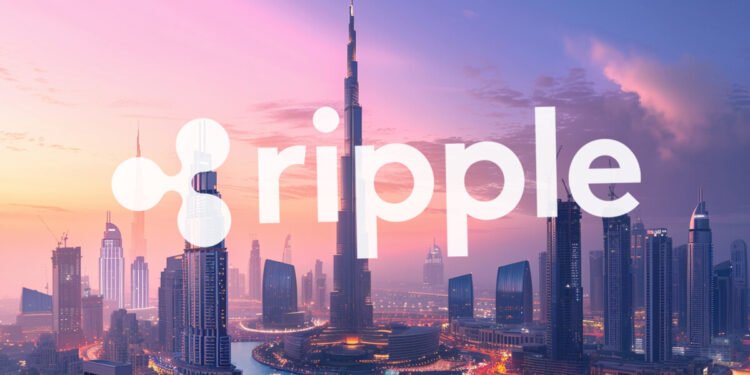Ripple Secures Regulatory Nod in UAE, Fostering Financial Service Innovations
Ripple has achieved a significant breakthrough in the financial technology realm with the recent issuance of in-principle approval from the Dubai Financial Services Authority (DFSA) on October 1. This landmark event positions Ripple as the inaugural blockchain-based payment service provider to secure a license from the DFSA, firmly establishing its regulated global presence in an increasingly competitive market landscape.
Insightful Perspectives on Regulatory Implications
The recent regulatory milestone attained by Ripple is deemed crucial within the context of its overarching global strategy. With a portfolio exceeding 55 licenses worldwide—including endorsements from the Monetary Authority of Singapore (MAS) and the New York Department of Financial Services (NYDFS)—this accreditation by the DFSA not only broadens Ripple’s operational scope but also bolsters its competitive edge. Observers suggest that this regulatory green light could pave the way for Ripple to achieve its ambitious objective of offering swifter and more cost-effective cross-border payment solutions while remaining compliant with extant regulations.
According to insights from Houlihan Lokey, a prominent global investment bank, Ripple’s growth trajectory positions it as a formidable challenger to SWIFT, the primary service provider in the cross-border payments sector. Their analysis underscores, “While SWIFT retains its prominence as the preferred messaging network, it now faces significant competition from card networks, blockchain solutions like Ripple, and various fintech ventures.”
Broader Implications within the UAE Market
Ripple’s strategic move to acquire licensing forms part of an inclusive agenda to amplify its presence in the Middle East, where it inaugurated its regional headquarters in Dubai in 2020. The UAE’s supportive regulatory landscape, characterized by transparency and innovation as per Ripple’s assessment, proffers abundant growth opportunities not only within the domestic market but also in neighboring areas such as Africa and South Asia.
Ripple CEO Brad Garlinghouse accentuated the significance of the UAE’s regulatory framework, affirming, “With its forward-looking regulatory stance and explicit directives for innovative enterprises seeking to invest and expand, the UAE is positioning itself as a global trailblazer in this fresh era of financial technology.” This viewpoint underscores Dubai’s status as a fintech nucleus, nurturing an environment where blockchain solutions can flourish.
Potential Impacts on the Financial Realm
The implications of Ripple’s DFSA approval reverberate extensively. By enabling the integration of enterprise-level digital asset infrastructure in the UAE, Ripple can introduce its Ripple Payments Direct (RPD) solution, primed to revolutionize cross-border payment effectiveness. This development aligns with Ripple’s mission to refine liquidity management, asset protection, and the seamless fusion of fiat and digital currencies.
Ripple’s expanding footprint and capabilities in the UAE may catalyze heightened competition among prevailing financial transaction networks, fostering innovation and conceivably dwindling costs for end-users in the long haul.
Closing Thoughts: Progress for Ripple and Fintech Ingenuity
To conclude, Ripple’s recent receipt of licensing from the DFSA signifies a momentous stride in the company’s quest for innovation in the financial services domain. As it gears up to operate from the Dubai International Financial Centre, the repercussions of this approval extend beyond Ripple—it heralds the UAE’s burgeoning profile as a global fintech epicenter. This advancement not only underscores Ripple’s dedication to regulatory adherence but also spotlights the potential for significant advancements in cross-border payment solutions, ultimately benefiting enterprises and consumers alike.








